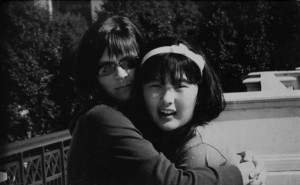
Deb Fuller, left, and her daughter Hope, 12, in 2009 shortly after Hope was diagnosed with a rare brain stem tumor. (Family Photo / July 6, 2012) (Source: Chicago Tribune)
Last month, Chicago Tribune writer Barbara Brotman was tasked with writing a story about new research presented in Chicago on “a particularly uncomfortable subject” — how to talk to kids and teenagers about their possible death. The research found that teens do want to discuss their end-of-life wishes and be involved in decisions regarding end-of-life healthcare, but Brotman was much more interested in the personal stories of the families that had faced these conversations.
After getting the cut-and-dried information from the researchers, Brotman sought out a number of hospices and families who had faced the loss of a child. She was moved by the experiences these families had faced, and what she heard reinforced what researchers had found: Kids want — and deserve — the opportunity to talk about what lies ahead.
Seriously ill children and teens often have a greater understanding of their situation than adults imagine. Even though they might want to talk about it, they tend to go along with their parents’ decisions, in order to appease and protect their families from suffering or facing their potential loss. Conversely, parents may avoid end-of-life conversations with children in order to protect them from a devastating reality.
However, as Brotman states, “It is important to tell them: Mortality is a fundamental fact — perhaps the most fundamental fact — of human existence,” and anyone facing it has not only a right, but often a desire, to talk about it.
Brotman shares the stories of the families she spoke with here.
“Deb Fuller, of Woodstock, spoke eloquently, to me and to Tribune photographer Keri Wiginton on video, of how she wished she had broached the subject earlier in her daughter, Hope’s, illness.
“Annmarie Campus spoke of her limited interactions on the subject with her son, 13-year-old Jeremy; and when Tribune photographer Terrence Antonio James and I went to their home, Jeremy recounted his battle against cancer and told us that his choice was not to talk about the possibility that he might not recover.” – Barbara Brotman
Have you faced the loss of a young child? How did you approach conversations about their illness and their end-of-life wishes?

 Talking to Kids Facing Death
Talking to Kids Facing Death



 “As Tears Go By” by Marianne Faithfull
“As Tears Go By” by Marianne Faithfull
 “The Sea” by John Banville
“The Sea” by John Banville














